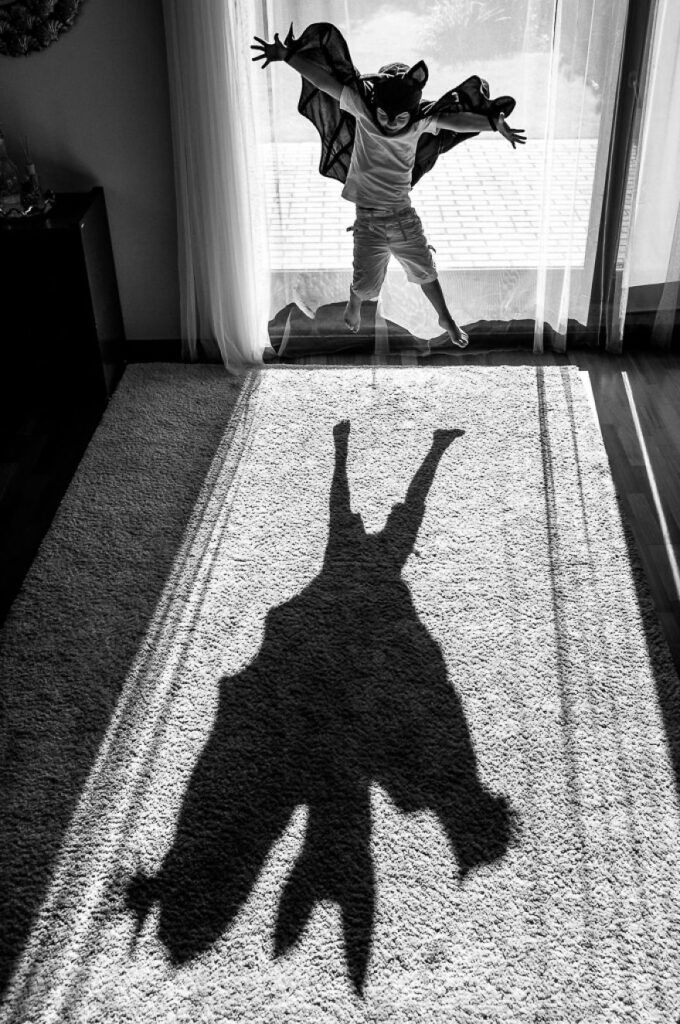The question of “What if?” is one of the core triggers of creativity. Not only considering the fields of targeted problem solving such as engineering, social sciences or design where it is more consciously stated but also in the fields of music, dance, writing or visual arts where it may be processed more intuitively. As the result of dissatisfaction with the current situation or as an answer to an intense feeling, the encounter with this unavoidable question occurs at different levels of our conscience. An unconscious decision for “What if I go a bit off key singing this tune?” may be a whole new musical style. An intuitive sense such as “What if I add some cinnamon to this traditional lentil soup recipe?” might be the start of a new cultural shift in our kitchen if not our community. “What if we introduce a two credit creative thinking course to our high school curriculum?” might be the start of a societal change. We encounter our “what if” questions when least expected, sometimes totally unaware and we form novel imaginations, ideas, experiences, senses and feelings.
Whether we act on “what if” spontaneously, as when we are producing the bases of a new composition, abstract painting, a dance move or we act methodologically stating it as a problem during a design ideation process, during programming a new system, this act comes at a cost which is a little uncomfortable. Could this be the reason why we sometimes don’t answer this call right away? Is it why I jumped up a couple of times and walked around the house while writing these ideas down? Overall, could it be the cost of doubt that makes us a bit anxious? The doubt that “others might not like the combination of lentil and cinnamon as much as we do” does not let us escape the call though. If it did, humanity would have been eating the same recipe for every meal for ages.
There are many attempts to describe creativity and great research on why some people are considered more creative, yet I haven’t come across a fully satisfying one. I like considering a more exciting perspective; why and when we choose to stay uncomfortable and take the risk. The risk of failure or wasting our time, the fear of zero conclusions and no closures.

In his book “Courage To Create” Rollo May describes the core of courage as the dialectical relation between sharp belief and doubt. He says that a healthy self-commitment to a creative act does not happen beyond doubt, but in spite of it. We can pursue our creativity only if we engage fully, yet aware that we may be wrong. Creative courage and resulting act occurs in the hours spent unnoticed as we commit ourselves to answering our “what if” question facing ambiguity. In Eric Fromm’s words, “creativity requires the courage to let go of certainty.” Creativity or the creative result is the fruit of our existence through doubt and persistence of our enthusiasm through anxiety. This is the persistence that allows many painters to see the external reality in a subjective new way and commit themselves to endless trials to describe it visually embracing and favoring their own curiosity over the fast and safe closure.

As children we wonder, we imagine and act on it, especially through the games we create. We embrace trial and error because we are not aware of failure or social rejection yet. This is why it can be claimed that it is in our nature to come up with ideas and take action. However, as we grow older, the idea of “What if I fail” anxiety dominates our “What if…” curiosity. We need courage to access this nature passing through the goal oriented, pain killing pragmatism of daily life. According to Tom Kelly, founder and partner at design and innovation consultancy studio IDEO, this is why creativity isn’t some rare gift to be enjoyed by the lucky few, but part of our human thinking and behavior. And since it is the natural ability within us, it can be relearned and it can be unblocked. According to Kelly, our belief systems influence our actions. Our creative confidence, the belief that we can make a difference around us is the major belief system embraced by people whom we call creative. With willing practice, any one of us can expose ourselves to learn and internalize new belief systems.
From this perspective, if we want to experience creativity, it is a good exercise to try staying a bit more in the rough zone when faced with complex problems or feeling stuck somewhere in the flow. Utilizing the zone of unknown, of trial and error and doubt instead of jumping to quick, safe decisions or leaving the idea totally. Whenever I felt stuck, discouraged and in flight mode, my mother reminded me that nothing is a waste, we learn from everything we experience and that we can apply the knowledge to some other domain later in life. I rejected adopting this perspective and searched for perfect paths until I realized later that what I pictured as the perfect process never existed for creativity.
As we make our soup with rule of thumb cinnamon and good intentions we might not be as lucky as Ratatouille at the end. We face failure, rejection, even distrust not only of our audience but ourselves. However the strong subjective urge we feel, that there is definitely a tasteful connection, keeps fighting with this prospect. We are in conflict, we face uncertainty. We may choose to prepare some in small scale for a demo trial, we may choose to research a bit and then decide, or we may just laugh and throw it in the bin at the end. But if we want to form a new belief system and experience creativity, we only fail if we stop and step back.